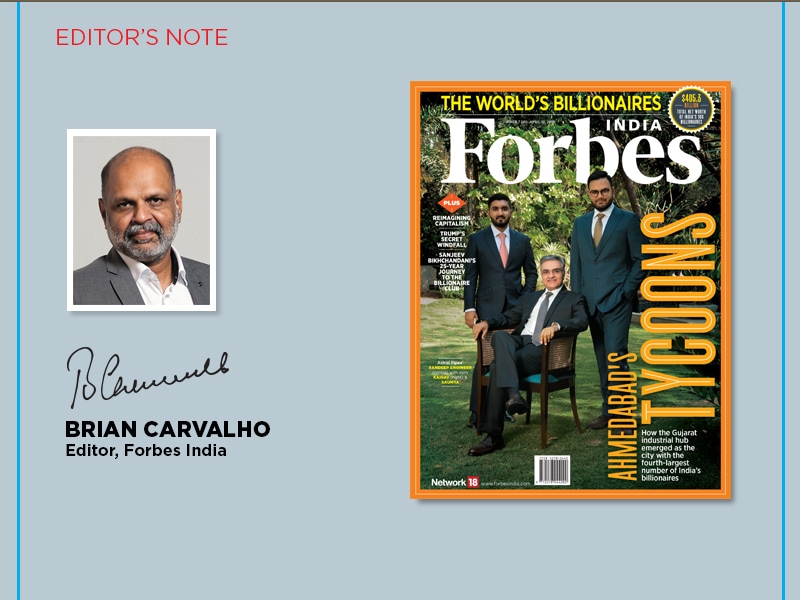All the money in the world
A fallout of turbulent markets is the shrinking of the billionaire list and the billions themselves


For Forbes India’s editor to root for (entrepreneurial) capitalism ahead of (democratic) socialism may seem as much a no-brainer as stock market-minded chartered accountants (CA) pillorying economists for raising concerns about the quality of India’s economic data. Then again, the good CAs have also done their bit to champion the India story and take it global—just as Forbes India has done as a torchbearer of Indian entrepreneurship and wealth-creation.
Yet, there’s no denying that capitalism and the billionaires it creates have been under fire. Both in the West and India, a string of yesterday’s tycoons have emerged naked when the tide went out.
If there’s one silver lining to the treasure chests of India’s billionaires—106 of them as per the Forbes 2019 list of The World’s Billionaires—it’s thanks to a handful of philanthrocapitalists doing their bit of good. Western-style philanthropy made famous by the likes of Bill Gates and Howard Buffett has its critics—it softens tax blows, and influences governments in the third world, they say—but India has still to reach that kind of scale in giving. It’s when an Azim Premji gives away 34 percent of his Wipro shares valued at roughly $7.5 billion to charitable causes that a good side of Indian capitalism comes to the fore.
Such rare acts of giving do their bit to shift the glare from free market excesses, but they aren’t enough. In the US, recent polls suggest that more millennial and Gen Z voters appear to be gravitating towards socialism. But this may be a sweeping conclusion to jump to: After all, these young voters may have a bone to pick with big business but have few problems with entrepreneurship and free enterprise.
The somewhat loose usage of ‘capitalism’ and ‘socialism’ may have something to do with US President Donald Trump. Determined to make socialism an election issue in 2020, Trump recently thundered that he was “alarmed by new calls to adopt socialism in our country”. A mix of capitalism (entrepreneurship, free markets) and socialistic programmes isn’t alien in the West and, back home too, where economic reforms have coexisted since 1991 with ‘socialist’ in the Constitution (although the latter was controversially added with the 42nd Amendment in 1976). Yet it’s time to reimagine capitalism, and Forbes’s chief content officer Randall Lane goes about doing just that.
A fallout of turbulent markets is the shrinking of the billionaire list and the billions themselves. But there’s always the excitement that debutants bring along. Among the six new names to the India list, one is perhaps the country’s earliest internet billionaire with locally-public listed stock, and the other a low-profile tycoon from Ahmedabad who prefers to let his brand do the talking. Don’t miss Sayan Chakraborty’s profile of Sanjeev Bikhchandani and Naini Thaker’s chronicle of the journey of Sandeep Engineer and his company, Astral Pipes.
Ahmedabad, a traditional hub for textiles, pharmaceuticals and chemicals, is today also attracting new-age businesses. It is also the city with the highest number of billionaires, after Mumbai, Delhi and Bengaluru. Thaker caught up with the tycoons of Ahmedabad to find out what makes the city and its industrialists tick.
Best,
Brian Carvalho
Editor, Forbes India
Email:Brian.Carvalho@nw18.com
Twitter id:@Brianc_Ed
First Published: Mar 29, 2019, 09:05
Subscribe Now